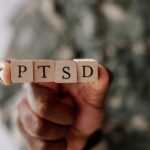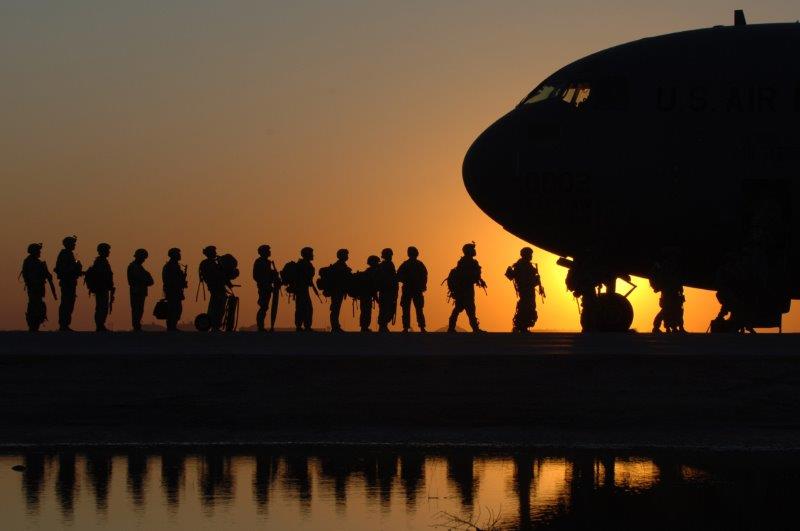So, are security guards first responders? When an emergency or crisis situation arises, every second counts. Having trained professionals ready to jump into action can make all the difference in preventing further harm and saving lives. While police, firefighters and medical teams are recognized first responders, there is another group of dedicated personnel that often serve as the vital first line of defense - security guards.
As trained professionals responsible for the safety and security of people and property, security guards frequently find themselves responding to emergencies. Their presence on the frontlines enables them to take swift action, providing immediate assistance until emergency services arrive.
In this blog, we’ll explore the critical role security guards play as first responders. We’ll look at how their training prepares them to handle crisis situations, real-world examples of security guards in action, and the immense value they bring to emergency response.
Key Takeaways:
- Security Guards are not legally designated as professional first responders, but serve that crucial role by taking immediate action in emergencies.
- Security guards receive ongoing training in areas like emergency response, first aid, and crisis management to prepare them as first responders.
- Their presence at secured locations enables rapid response, allowing them to provide immediate assistance in emergencies before emergency services arrive.
- Real-world examples demonstrate security guards saving lives, de-escalating conflicts, and coordinating smooth emergency response.
- Well-trained security guards bring immense value through their emergency preparedness, rapid response capabilities, and crisis management coordination.
- Awards and recognition programs honor the dedication and heroism of outstanding security guards who go above and beyond in emergency situations.
Are Security Guards Legally Classified as Professional First Responders?

While security guards take on many responsibilities of a first responder, legally they are not classified as professional first responders in most jurisdictions. The legal designation of "first responder" applies specifically to emergency services personnel such as police, firefighters, and EMTs.
Security guards are not legally mandated to provide emergency medical care or respond to crises in the way law enforcement, fire departments, and EMS individuals are obligated to. Their emergency response services are voluntary.
That being said, many security professionals and industry advocates argue guards should be granted professional first responder status. Their presence at secured locations allows for rapid response, and their actions have demonstrably helped save lives.
Moreover, many guards choose to become certified emergency medical responders or pursue other training to enhance their skills. These trained security officers who regularly provide competent emergency care could potentially qualify for first responder status.
For now, strict legal classification remains limited to police, fire, and medical services. But through their exemplary conduct, there are increasing calls to formally acknowledge the role many security guards play as de facto first responders. Their contributions certainly fulfill that role in practice, even if legal designation has yet to catch up.
The Role of Security Guards in Emergency Response Situation
Part of what makes security guards well-suited for first response is the extensive training they undergo to handle emergency situations. From first aid and medical response to crisis prevention and management, security guards are equipped with a diverse skillset to address the urgent needs that arise during crises.
Providing Immediate Assistance in Crisis Situations
One of the key advantages of security guards during emergencies is that they are already onsite at the properties and locations they protect. This allows them to provide immediate emergency care and response, taking action to contain dangerous situations in those critical first few minutes before emergency services arrive.
Part of what makes security guards so essential during emergencies is their advanced preparation through ongoing training. Many pursue additional certifications in emergency medical response, expanding their knowledge and abilities to handle medical crises.
Security guards receive first aid and CPR training to enable them to assist victims during medical emergencies. By promptly applying these lifesaving skills, security guards can help stabilize victims and even save lives while awaiting professional medical backup.
Beyond medical care, security guards are trained in emergency protocols and crisis response to assess situations and implement emergency plans. Their quick thinking and rapid response capabilities allow them to make critical decisions on how to best address the emergency and protect human lives.
With such extensive education in areas like first aid, crisis response planning, evacuation procedures, and emergency care, security guards enter crisis situations ready to take action. Their specialized skillsets save critical time and ultimately lives by delivering competent emergency assistance until additional first responders can take over.

Ongoing Training to Enhance Emergency Preparedness
To strengthen their competency as first responders, many security guards pursue ongoing training and certification. This enhances their emergency preparedness and equips them with specialized skills to handle crises.
- Emergency medical response training - Allows guards to provide advanced emergency care.
- Crisis management training – Prepares guards to make rapid assessments, implement emergency plans, and coordinate response teams.
- First responder certification – Validates a guard's skills and expertise in areas like emergency medical care, CPR, fire safety and crisis intervention.
- Emergency preparedness drills – Tests and improves guards' readiness to take action in emergencies and coordinate response.
This dedication to continuous skills development is crucial in ensuring security guards remain highly capable first responders as protocols evolve and new threats emerge.
Real-World Examples of Security Guards as First Responders

While training and preparation are key, real-world experience responding to life-threatening emergencies and dangerous situations is what truly tests security guards’ capabilities to put their skills into action. There are countless examples of brave security guards undertaking daring rescue missions, providing emergency care, and averting tragedy through rapid response.
Saving Lives Through Swift Medical Response
In Las Vegas, security guard Richard Spedding responded to screams coming from a hotel room. He arrived to find a guest in medical distress, with no pulse. Spedding immediately began CPR, continuing for 11 minutes before paramedics arrived. The guest survived due to Spedding’s emergency response, with doctors confirming that the CPR saved his life.
Meanwhile in New York, security guard Jason Green was patrolling when he came across a man who had been stabbed. Recognizing the urgency, Green applied pressure to the wound while calling 911. His immediate emergency care helped the man survive until ambulances could transport him for surgery.
De-Escalating Conflicts and Diffusing Tense Situations
Beyond physical medical emergencies, security guards frequently respond to dangerous interpersonal situations. Professional security guard Robert Walker shared how his crisis intervention training prepared him to de-escalate a potentially fatal conflict.
When a hostile, intoxicated guest entered a hotel wielding a firearm, Walker kept him calm using conflict mediation techniques. He convinced the man to relinquish his weapon, averting potential bloodshed thanks to his cool-headed response.
These examples exhibit security guards’ varied first response capabilities that enable them to promptly react to urgent medical needs, safely defuse powder keg situations, and perform rescues in the face of danger. Their capacity to take decisive action the moment a crisis strikes makes them truly invaluable first responders.
Did You Know: In 2017, a security guard named Aaron Feis was killed while shielding students from a gunman at Marjory Stoneman Douglas High School in Parkland, Florida. Feis' actions are credited with saving the lives of several students.
The Benefits of Well-Trained Security Guards in Emergencies
When emergencies strike, security guards play an integral role as part of the emergency response process. Their specialized training combined with prompt availability onsite provides the rapid response needed to minimize harm and save lives in those critical first moments.
Rapid Response Capabilities to Minimize Harm
Security guards’ positioning on location means they are typically the first to reach the scene when emergencies occur onsite. This allows them to immediately assess situations and take appropriate action within minutes, if not seconds – a rapid response time that is key to containing threats.
Whether through emergency first aid, fire containment or neutralizing a hostile perpetrator, security guards are empowered to quickly employ tactics that can stop emergencies from escalating further. This mitigates damage and prevents additional loss of life in the aftermath of crises.
Coordination with Emergency Services for Effective Crisis Management
Security guards strengthen emergency response through their coordination with police, firefighters and medical services. Their emergency preparedness and extensive communication networks allow them to call in the right emergency specialists based on the crisis scenario.
Once professional emergency teams are enroute, security guards continue supporting response efforts by providing access, permissions, andmission-critical information to aid response teams. This high level of emergency response coordination enables all responders to work together seamlessly for the most successful crisis management.
Well-trained security guards are invaluable players in emergency response. Their ability to take immediate action, implement emergency plans, and smoothly coordinate with public emergency services delivers rapid, effective response...and saves precious lives.
Recognizing the Value of Security Guards as First Responders

Despite their integral role as first responders, the efforts of security guards often go unrecognized or overlooked. However, within the security profession, there are initiatives to celebrate those who have demonstrated exceptional courage, quick thinking and commitment to protecting lives in the face of emergencies.
Awards for Outstanding Service and Heroism
ASIS International, the leading security industry association, maintains the Security Services Council with a mission to highlight the life-saving work performed by security guards.
The council issues annual awards to honor security guards who display exceptional emergency response excellence. These awards commend guards whose split-second decisions under pressure directly saved lives as well as prevented emergencies.
By distinguishing these examples of outstanding conduct, ASIS International shines a light on the critical involvement of trained, dedicated security guards in emergency response. Their awards platform allows the industry to recognize and celebrate the remarkable passion and bravery exhibited by many exceptional security professionals.
Appreciating Their Vital Contribution to Public Safety
Beyond awards, it is essential that public perception shifts to acknowledge the reality that security guards are often first responders. They regularly risk their own safety to protect and save members of the public in emergencies.
With the rising frequency of natural disasters, accidents, crises and public violence, the role of security guards will become even more pivotal as an emergency response force. Cities and communities are encouraged to include private security organizations and guards in emergency preparedness initiatives and training. This will empower greater public-private response coordination.
There are also initiatives to advocate for state and federal legislation that formally recognizes security guards as professional first responders. This will enable greater funding and resources to help train and equip guards.
Elevating security guards’ status as first responders - both legally and socially - is key to empowering these brave men and women to keep protecting communities.
Conclusion
When every second counts, security guards’ extensive training, prompt availability and specialized skills make them indispensable first responders. Their ability to rapidly assess situations, provide emergency care and coordinate crisis response helps mitigate harm and prevent tragedy in emergencies.
Real-world examples prove security guards have undertaken daring rescues, delivered life-saving medical response and bravely disarmed volatile situations. Well-trained security guards enhance public safety through their emergency preparedness and rapid response capabilities.
While society’s eye is fixed on police, fire and medical responders, it’s time to appreciate the critical role professionally trained security guards play on the front lines. Award programs that recognize security guard heroism are an encouraging step towards acknowledging their service. There is still progress to be made in formally designating security guards as professional first responders.
What’s undeniable is that security guards’ active presence and quick action during emergencies provides a vital public service. Their willingness to run towards tragedy and chaos – not away - makes them unspoken heroes who are ready to protect lives when crisis strikes.
Frequently Asked Questions
Are security guards considered first responders?
While not legally designated as professional first responders, security guards essentially serve that crucial role by taking immediate action in emergencies. Their active onsite presence enables them to provide initial emergency care and response until public first responders arrive.
What types of first responder training do security guards receive?
Guards undergo training in areas like first aid, CPR, medical response, fire safety, crisis management and emergency protocols. Ongoing education and certifications reinforce these competencies.
What are some examples of security guards acting as first responders?
Guards have delivered lifesaving CPR and first aid, de-escalated dangerous situations, safely evacuated people from crises, and provided intel to guide emergency teams. Their rapid assessment and response times are critical.
How does being onsite aid the guard's first responder role?
With guards already actively patrolling properties, they are able to respond and take action within moments of an emergency. This immediate intervention helps contain threats and minimize harm quickly before emergency backup can arrive.
Why do security guards deserve recognition as first responders?
Guards place their own safety on the line to protect the public in emergencies. Their acts of bravery, quick thinking and specialized training have directly helped save lives. Designating them as pro first responders acknowledges their service.
How do security guards help prevent criminal activity at the properties they protect?
Security guards are invaluable for preventing criminal activity through their patrols and monitoring of buildings, residential properties, and premises. Their expert training equips them to identify suspicious individuals who may attempt to commit crimes. Guards can detain criminals until law enforcement arrives or contact police if they witness illegal activity. Their presence provides security and peace of mind that establishments and residences are safer.
What are some typical circumstances where a security guard may need to respond as a first responder?
Typical circumstances where security guards may need to respond as first responders include medical emergencies, fires, accidents, or acts of violence on the premises they are protecting. Their onsite presence during their duty enables rapid response in these emergency situations to help keep employees, residents, and the public safe until additional assistance arrives. Additionally, they are trained to handle incidents like criminal activity and can detain suspects.











